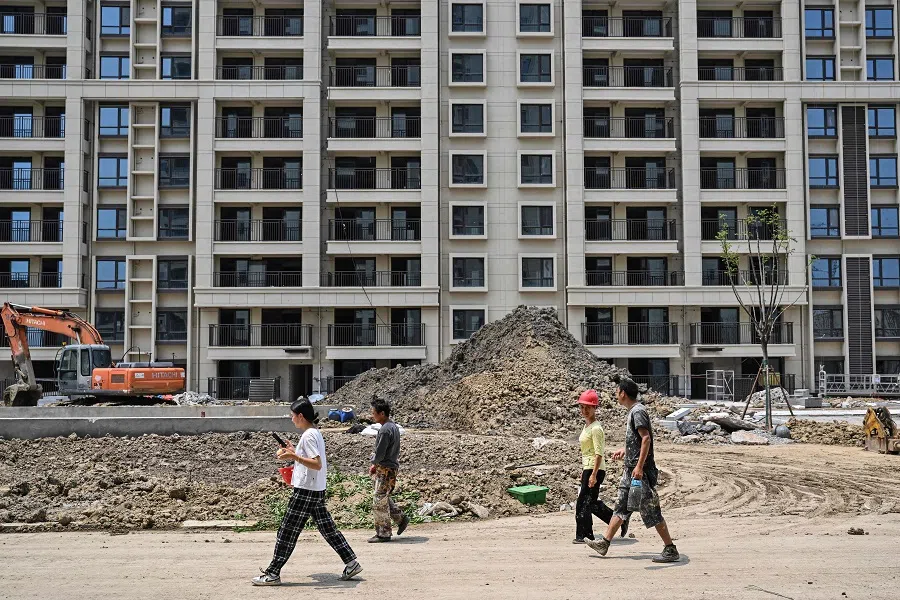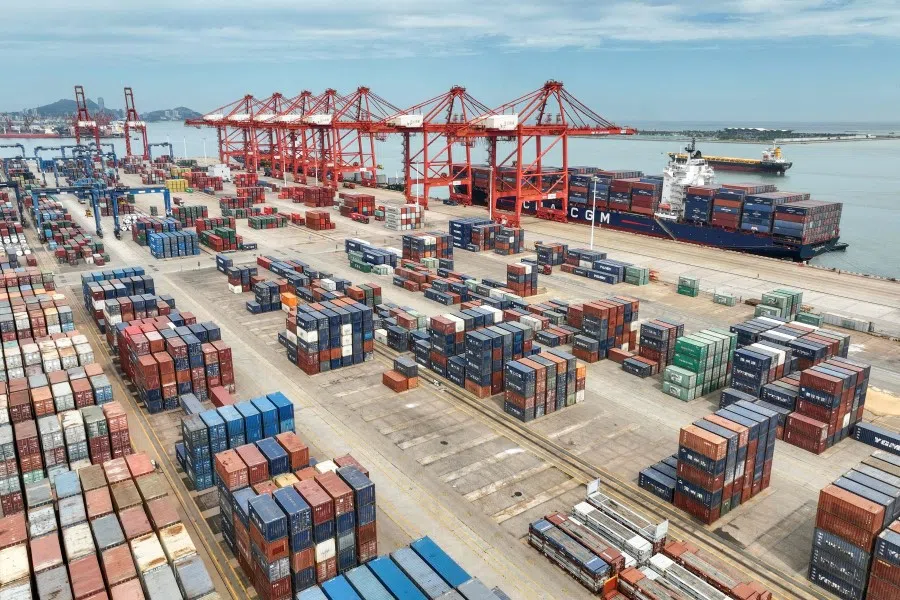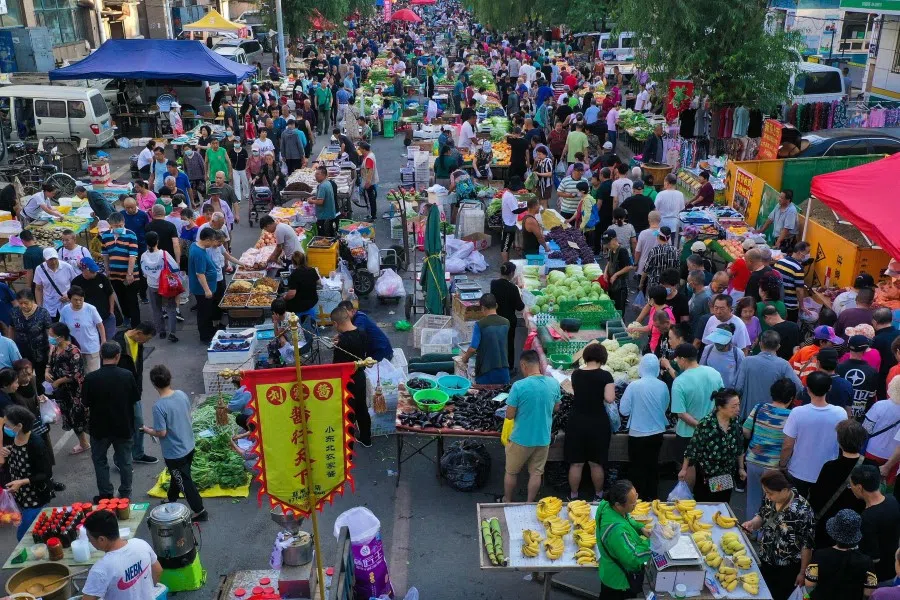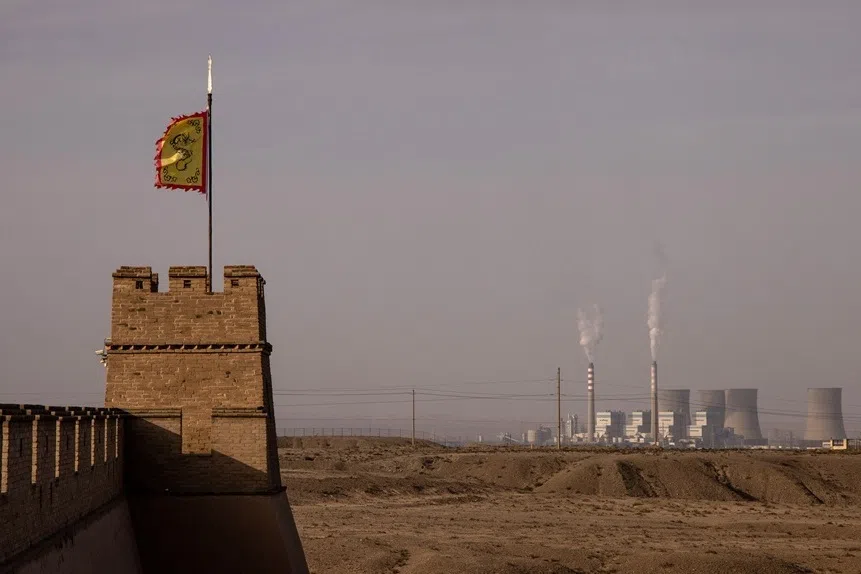Struggling economy now a taboo topic in China
Lianhe Zaobao correspondent Yang Danxu notes that the public space for discussion of China's economic situation has tightened, even for experts and analysts. Should China control the narrative surrounding its struggling economy, which its people can clearly see and feel the impact of?

During my vacation to Zhejiang some time ago, the economy was an unavoidable topic among friends.
The Chinese economy did not see a significant rebound even after the pandemic ended; instead, downward pressure on the economy has only worsened. Even Zhejiang, an economically developed region, is struggling to improve its GDP figures.
Investors staying away?
A friend working in the development zone of a second-tier city lamented that the biggest concern now is the difficulty in attracting business and investments. To meet the demands of the GDP, local governments are assigning targets to various departments. Yet, the investment department does not have attractive preferential policies to offer to potential investors.
My friend grumbled that "even the smartest housewife can't cook without rice" (巧妇难为无米之炊); after wearing out the doorstep of countless entrepreneurs, they just couldn't find anyone willing to invest. This is a far cry from the situation a few years ago whereby one simply sits in the office and investors would come knocking on the door.
Another friend working at an enterprise chimed in, saying, "Business investment is not a faucet that can be turned on and off at [the government's] command." The concern now is not whether an investor has the money; even if they do, they are thinking long and hard about investing because "they have been traumatised by the situation over the past few years".

When we talked about the property sector, everyone agreed that China's housing supply exceeds demand, and home prices will continue to fall. They warned everyone not to buy a unit for now unless absolutely necessary.
China's southern region has always been more economically advanced than the north. Especially for the southeastern coastal region, its private sector is well developed and economic growth never seems to be a problem. Even at the height of the China-US trade war before the pandemic, there was no sign of any economic downturn around Jiangsu and Zhejiang.
Pessimism has engulfed the Chinese economy since the second quarter of the year, with no bright spots in sight for key macroeconomic indicators such as consumption, investment, export and employment.
Countering negative interpretations
While it can't be said that the economy has become sluggish, gone are the days when the economy was booming in the Jiangnan region, where people were full of confidence, enthusiastically investing, buying homes and making money at every turn.
Pessimism has engulfed the Chinese economy since the second quarter of the year, with no bright spots in sight for key macroeconomic indicators such as consumption, investment, export and employment. Latest statistics released on 8 August threw more cold water on the situation, with the value of exports in US dollar terms falling 14.5% year-on-year in July, the biggest drop since the peak of the pandemic in China in January/February 2020.

China is also experiencing a rare period of falling prices after the relaxation of anti-Covid measures, instead of increasing prices that some economists had predicted at the beginning of the year. This is in stark contrast to the soaring inflation that the US and other major economies experienced after reopening. China's producer price index fell for a tenth consecutive month since October 2022, while its consumer price index fell to zero in June.
People are wondering what has happened to the Chinese economy. Is this a temporary cyclical fluctuation or a long-term structural recession?
Over the past few months, Chinese economists and overseas media have thrown out various ideas to explain the current unusual state of the Chinese economy. One argument is that China is heading towards deflation, and the Chinese economy might trend towards "Japanification". In an article in May, The Economist gave another analysis that China's rise is about to peak.
Be it the Japanification of China's economy or a peak in its rise, both reflect pessimism about China's economic prospects, and Beijing has recently been particularly cautious about these bearish views. Government-linked think tanks and academics have come forward to counter these negative interpretations.
In May, the Chongyang Institute for Financial Studies at Renmin University of China released a report specifically refuting the "peak of China's rise" narrative, criticising it as a rehash of the "China collapse" theory that persisted for over two decades, but with new context.
Topics deemed off-limits include capital outflows, falling prices, deflation, weak demand and the sluggish real estate industry.
Tightening space for discussion
Within China, Beijing has also begun to tighten the space for discussions on economic risks. Following the silencing of popular economic commentators such as Hong Hao and Wu Xiaobo, a report in the Financial Times on 6 August said that Chinese authorities are pressuring economists and securities analysts to refrain from commenting on the negative trends in China's economy. Topics deemed off-limits include capital outflows, falling prices, deflation, weak demand and the sluggish real estate industry.

Some think tanks and securities analysts also expressed that they are now facing pressure to present economic news positively in order to increase public confidence. An adviser to the People's Bank of China mentioned that the authorities want them to "interpret bad news from a positive light".
The article said that the pressure has "prompted many economists to refrain from sensitive topics or resort to euphemisms such as 'subdued inflation' in research reports and on investor calls".
In China's public opinion environment, there is less room for casual commentary on the more sensitive topics. Political issues that many people enthusiastically discuss in private are often off-limits in public settings and platforms. As the scope of public opinion has narrowed over the years, scholars and political commentators within China have engaged in even more self-censorship and avoided political subjects.
Economic commentary, which used to have more freedom, has now become taboo, highlighting the sensitivity of economic issues in China today, and the authorities' efforts to prevent negative public opinion from eroding confidence and causing a domino effect.
However, avoiding the discussion of issues and risks does not mean that the public does not see or feel them; on the contrary, their anxiety could be amplified.

While it is true that the lacklustre Chinese economy lacks confidence for now, where can confidence be regained? Is it from economic news that only makes favourable reports, embellished analytical commentaries, or individual perceptions within the economic system on real indicators such as income, employment, prices and sales?
Undoubtedly, if it is not mitigated, panic can stir itself up and give rise to even more panic and spread, while excessive sensationalism also needs to be controlled. However, avoiding the discussion of issues and risks does not mean that the public does not see or feel them; on the contrary, their anxiety could be amplified.
At present, the Chinese economy needs an injection of confidence and a restoration of vitality, but a tightening environment goes against this.
This article was first published in Lianhe Zaobao as "不能说的中国经济".
Related: Politics a threat to China's economy | Chinese netizens debate: Should China abandon the market economy for a 'people-oriented' economy? | Why China's economists and entrepreneurs are keeping mum about the economy | Chinese platform economy gets vote of confidence from government | Chinese economy in 2023: Worse before it gets better | Salvaging China's economy: Economic growth is meaningless if the society is ruined





